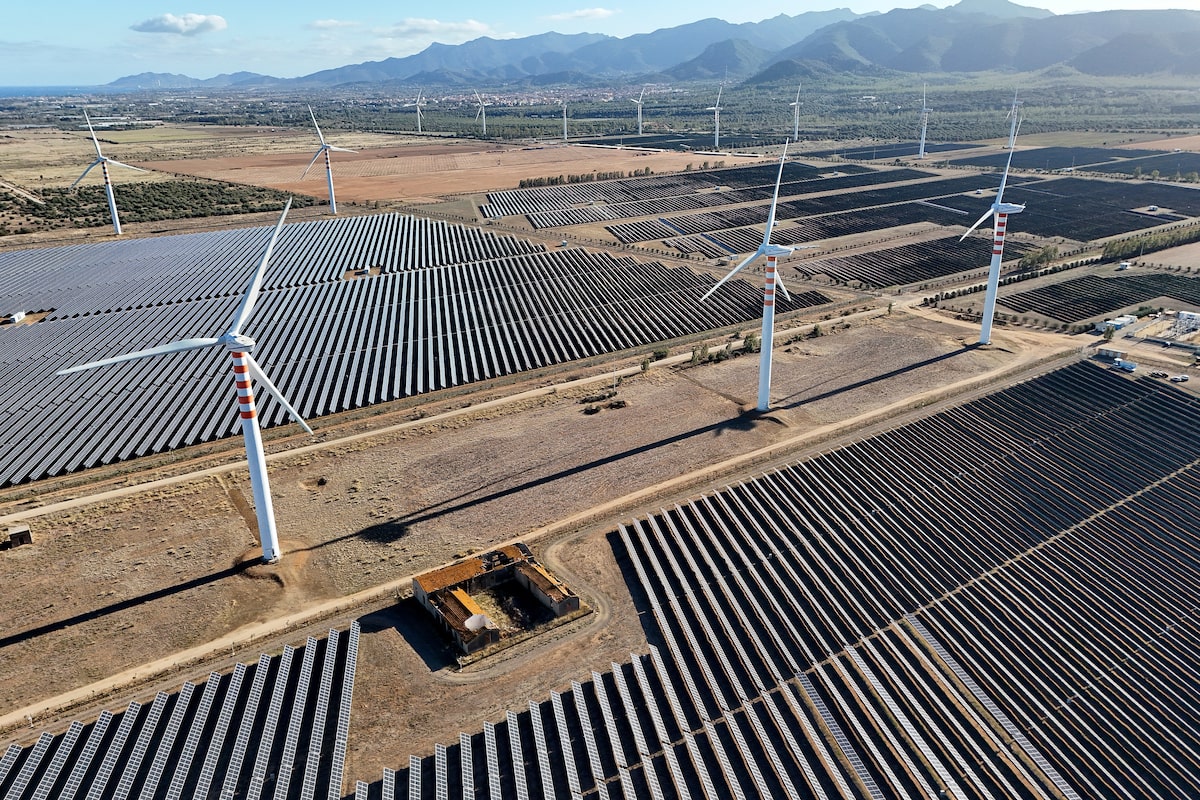Globe editorial: The free-market economics powering renewable energy
October 17, 2024

The potential of solar and wind to become a pillar of power systems around the world was, for many years, technically feasible but seemed to be economically unlikely.
Evidence has mounted over the past several years that strongly suggests the dominance of renewable power is now inevitable, based on market economics. After years of needing lots of money from taxpayers, to establish a foothold, the technology – especially solar paired with battery storage – is morphing into an economic force to compete and win against rival sources of electricity.
This does not mean power grids will transform overnight. It does not mean there are not many challenges. And it doesn’t mean there isn’t a big role for governments to speed change. Climate action is more urgent than ever.
In early October, the International Energy Agency – the long-standing advisory group to wealthy countries – reported that renewables are “on course to meet almost half of global electricity demand” within six years. By 2030, the IEA projects that of all the world’s electricity, solar and wind will double to 30 per cent from today’s level.
It is a big declaration. The key factor is cost. Most people have little interest in why and how a light turns on when they flip a switch. What we care about most is price and reliability. The local power grid is not going to be, tomorrow, 100 per cent renewable energy. But change is moving fast and, according to IEA executive director Fatih Birol, solar and wind “offer the cheapest option to add new power plants in almost all countries around the world.”
By contrast, the IEA sees the beginning of the end of fossil fuels’ dominance. The urgency to cut back on the bonfire of fossil fuels is high.
On Wednesday, in the IEA’s annual World Energy Outlook, it forecasts global demand for fossil fuels peaking by 2030, in part because issues of energy security and climate risks will propel greater use of electricity. That makes for a double challenge: renewables need to replace fossil fuels and help meet surging demand.
Human ingenuity and resolve got us to this moment. Lots more will be needed. New transmission lines, in Canada and everywhere, are essential, as well as speeding up approvals to build them. The IEA estimates countries need to soon build and modernize 25-million kilometres of power lines.
And, breaking news, it is true the sun does not shine at night. But demand for electricity is low overnight and grid-scale battery storage could carry a big load in the evening hours. The IEA argues that upward of 1,500 gigawatts of storage is needed by 2030 (about 10 times Canada’s entire grid).
This all does sound – perhaps like the goal of people walking on the Moon did in 1962 – a little fantastical. Consider, however, that turning sand into glass to harness sunlight to produce electricity is in the same remarkable scientific-engineering arena as refining crude oil into rocket fuel to fly into space. Humans have a history of marshalling elements and overcoming adversity.
But, yes, politics.
If Donald Trump lives in the White House come late January, his presidency would attempt to slow the advance of clean power in the United States. But the power of the market won’t disappear in the U.S. or anywhere else.
Opposition is less extreme in Canada, yet Conservative Leader Pierre Poilievre does not often speak about, and certainly doesn’t extol, solar. He should celebrate the market’s embrace of renewables. In Alberta, Premier Danielle Smith has worked to promote fossil fuels and slow solar and wind – in part squandering Alberta’s national leadership, powered by a free market, in renewables.
In the end, the power of prices will win. Look at the free market of Texas. The state where the oil gusher at Spindletop in 1901 launched the 20th century is the No. 1 state for wind and utility-scale solar.
Clean technology keeps getting better and cheaper. The price of solar fell 90 per cent in the past decade. The price of batteries fell by more than that. One can guess the technology of today will be outclassed by the technology of 2030 and beyond.
Climate action is essential. But the real payoff for everyone – beyond a viable climate for human life – is affordable energy in abundance that could accelerate economic growth for decades to come.
Search
RECENT PRESS RELEASES
Related Post



